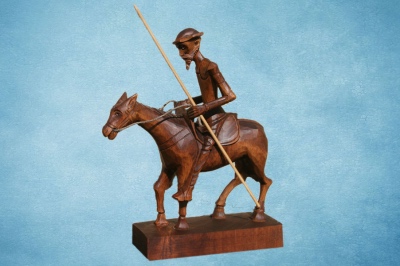To the Future
A half year ago, I saw Oppenheimer, a three-hour movie that transformed my mindset and knowledge base. I have taught various history, philosophy, and theology college classes in the past quarter century. I entered the theater on the opening night, thinking I had a relatively good grasp of J. Robert Oppenheimer and his role in the Manhattan Project. Three hours later, I left the theater, realizing how little I really knew about Oppie.

Since watching Oppenheimer, I am still drawn to understand the driving forces that swirled around in his mind. He is a larger-than-life example of the no pain, no gain concept. He was born into a privileged New York City family. Interestingly, his parents sheltered him from the real world. They could provide anything he ever needed. He attended the Ethical Culture School of New York, a private Jewish school. Oppie graduated at the top of his class. While in high school, he talked to someone and said, “Ask me a question in Latin and I will answer you in Greek!”
However, Oppie was Jewish and, for various reasons, didn’t see himself as Jewish. Some of that mindset was due to antisemitism in America. However, whatever the other reasons for his desire to be non-Jewish, that issue haunted him for much of his life.
While attending the Ethical Culture School in New York, Oppenheimer had very few friends, with one exception. He had a classmate who was neither Jewish nor from New York. His friend came from New Mexico. The two of them went to New Mexico for several months. New Mexico was a polar opposite of life in the big city. From then on, Oppie was fascinated by two radically different worldviews.
After high school, Oppie went to Harvard, Cambridge, and Göttingen, where he got his Ph.D. in eighteen months in 1927. Max Born and Oppenheimer, his graduate student at Gottingen, also worked on the structure of molecules, which produced the Born-Oppenheimer Approximation.
Oppenheimer returned to the States and taught theoretical physics at Berkley between 1929 and 1943. During the 30s, America was in the midst of the Great Depression. As a result, there was a rise in Communism. The FBI and J. Edgar Hoover spent years looking for Americans whom they deemed subversive. Many of his friends were Communists, but he never joined the Communist Party.
The issue of Oppie being a member of the Communist Party was another issue that haunted him during his life. It began a festering problem after meeting Gen. Leslie Groves. Groves sought a scientist to head the Manhattan Project in 1943 to develop an atomic bomb. Groves happened to meet Oppie. Oppie was like Carl Sagan, who understood physics but could explain to people who were less than novices in physics. Oppie was exactly what Groves wanted. Nevertheless, Groves ignored those who thought Oppie was a Communist Party member, and he got the job.
Groves and Oppie went to New Mexico, where Oppie had a small cabin. They found the perfect site at the Los Alamos Ranch School. They started a new town nearby with 100 scientists, which grew to 6,000. On July 16, 1945, the Trinity test was successful.
This is a photo of Oppie and his brother lying on the desert floor during the explosion.

Oppie said, “Well, it worked.” Days later, he gave a more literary statement.
We knew the world would not be the same. A few people laughed, a few people cried, most people were silent. I remembered the line from the Hindu scripture, the Bhagavad-Gita. Vishnu is trying to persuade the Prince that he should do his duty and to impress him takes on his multi-armed form and says, “Now, I am become Death, the destroyer of worlds.” I suppose we all thought that one way or another.
Oppie attempted to address the deaths at Hiroshima and Nagasaki as a deterrent for other countries to obtain nuclear weapons. However, the USSR soon had its own atomic bomb. Then McCarthy and Lewis Strauss went on a witch-hunt. Oppie failed to stop them from defaming his name.
It wasn’t until Edward R. Morrow interviewed Oppie that some Americans understood him better. This is a portion of that interview.
This is an excellent synopsis of Oppenheimer’s work on the Manhattan Project. Especially the last half of the video.















